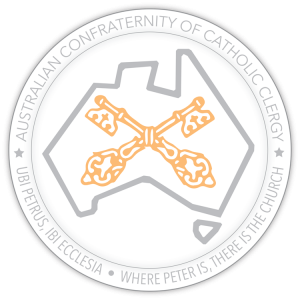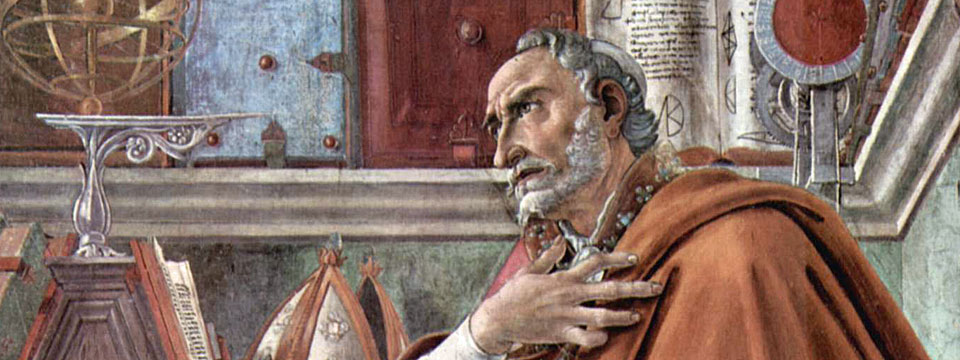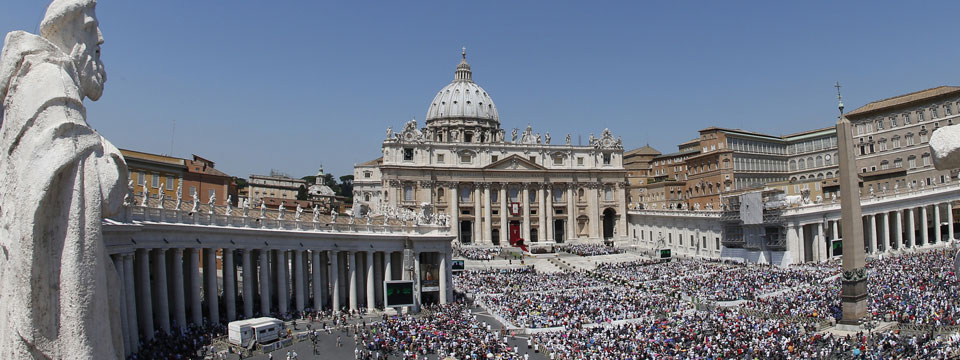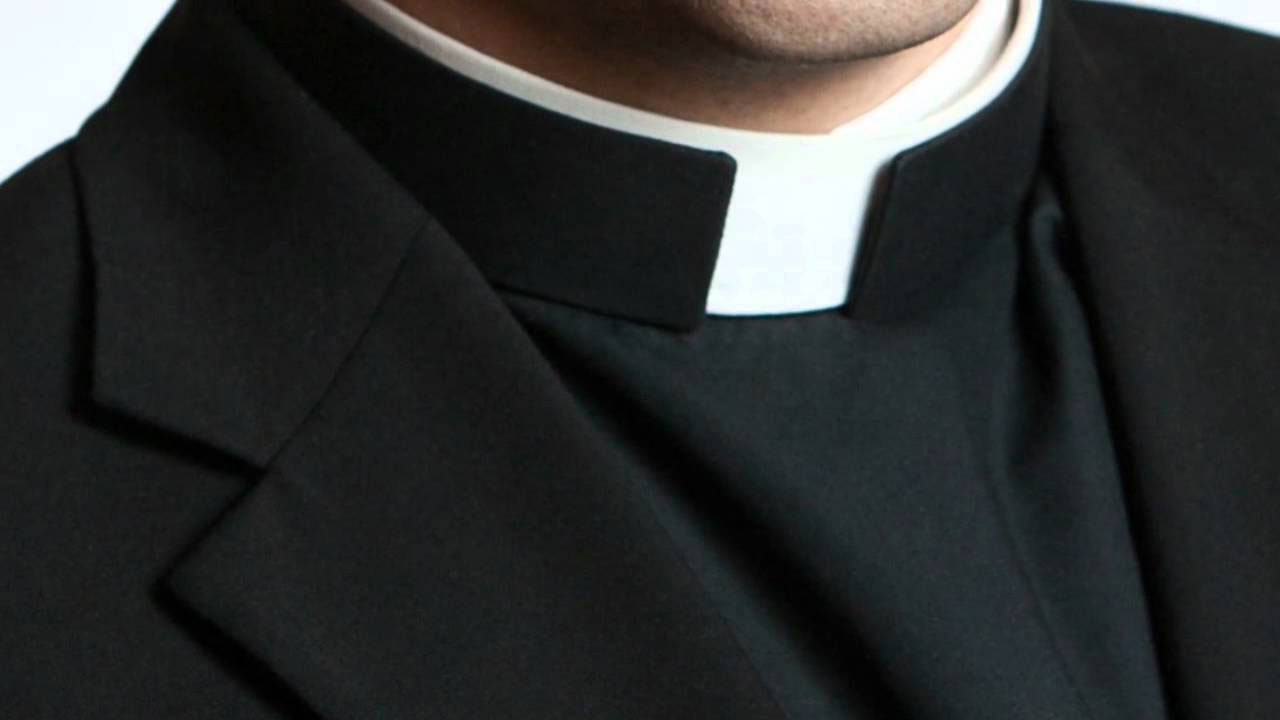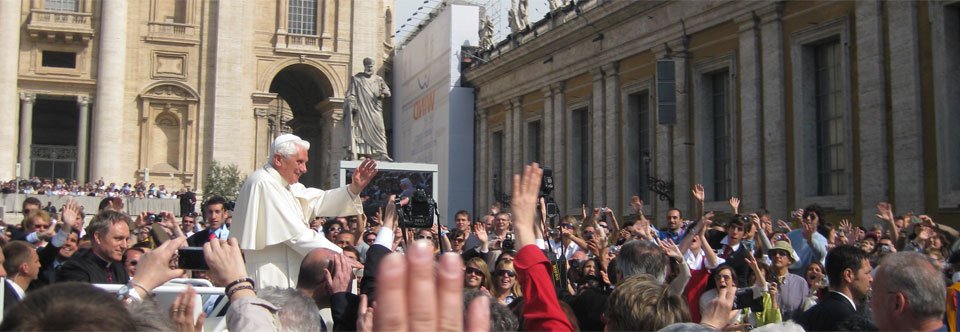If the Donatist Controversy is treated nowadays at all in seminaries and divinity schools, it is probably mentioned only briefly, perhaps in a survey course on Church History, perhaps in a course on sacramental theology. What most students take away from this treatment – I am guessing – is at best only a general awareness that early on in the fourth century a group of radical African Christians concluded that bishops who were in communion with other bishops who had handed over sacred books to Roman imperial officials during the Diocletian persecution were not real bishops, and that the sacraments they administered were neither valid nor efficacious. Students would have heard that, against this viewpoint, St Augustine established what would become the standard Catholic position on the sacraments; namely, that their validity does not depend on the moral or spiritual condition of the minister, but upon Christ, who is the true minister of every sacrament.
As far as it goes, such a treatment of this controversy is technically correct, and yet it is also inadequate. Indeed, the more we plunge into Christian writings of this period the more we understand the vision of the Church and its holiness that Donatist bishops offered to their followers as well as the appeal that this vision exerted over the latter. By focusing on the appeal behind this Donatist logic, we can also understand better why Augustine opposed it with a paradoxical viewpoint about the Church and its holiness.
For both Augustine and the Donatists, nothing that priests do matters more than to administer the sacraments, primarily baptism and Eucharist. Of course, both Augustine and the Donatists acknowledged that priests carry out other important ministries; they preach the Word, teach, exhort and console Christians in their faith. Yet nothing more than baptism and Eucharist communicates to believers the spiritual peace and reconciliation that constitute the ground of holiness. Hence, sacraments play an essential role in making Christians holy, and priests are inseparable from that process. This is the common ground that unites Augustine’s position with that of his adversaries, and it is important ground. As to what divides them, I have already indicated that the key to understanding this lies in perceiving how each party imagines the Church and the nature of the holiness that the Church offers through its sacraments.
The Church and the holiness offered though the sacraments
Donatists
To begin with the Donatists, they conceived of the Church in the terms described by St Paul at Ephesians 5:27, “a Church without stain or wrinkle”. They meant by this that the Church in its present historical condition was holy because all its members were holy; which is to say, free of serious sin. The Donatists imagined themselves as the remnant of a once vast, international Church that had lost its soul through the corruption of its priests.
They believed it was their mission to safeguard this remnant from contamination with the scandal of clerical betrayal that had so corroded the holiness of the Catholic Church that not only was it no longer capable of sustaining the true faith, it also destroyed the spiritual life of all those who still came into contact with it with the same sin and scandal. Donatists saw themselves as the “Church of the martyrs”, as the Church that stands in continuity with those Christians who had remained faithful during Roman persecution. Their Church had been purified by that persecution. In order to sustain that faith of their fathers, Donatists had to ensure that all their members became and remained holy throughout their lives. They saw their Church as the only oasis in the desert constituted by a world of sin. In their view, the “Catholic” Church had long ago betrayed itself and become indistinguishable from the pagan, sinful world. Donatists felt threatened by this world. They trusted that their sacraments and their priests alone would ward off the sin that had destroyed the rest of the Church.
One of their bishops, Petilian of Constantine, interpreted Psalm 23 as the perfect description of the Donatist ideal.{{1}} In so doing, he evoked the image of an oasis in the desert: “He makes me to lie down in the green pastures: He leads me beside the still waters. He restores my soul.” The Donatist bishop contrasts the green pastures and the still waters in which the soul is restored with the “valley of the shadow of death” representing the persecution that Church members must endure in this life. Petilian says that this Psalm refers to “our baptism”, meaning that when administered by his communion the sacrament draws its recipient out of the wilderness and into the green pastures beside the still waters where he dwells secure all the days of his life until he dwells in the house of the Lord forever. For Petilian, defence of the Christian believer from “the valley of the shadow of death” is the function of priests, whose sacrifices and prayers are efficacious only if their consciences are clean. In the following passage, Petilian addresses Catholic priests:
If you make prayer to God, or utter supplication, it profits you absolutely nothing whatsoever. For your blood-stained conscience makes your feeble prayers of no effect; because the Lord God regards purity of conscience more than the words of supplication, according to the saying of the Lord Christ, “Not every one that says to me, Lord, Lord, shall enter into the kingdom of heaven; but he that does the will of my Father who is in heaven.”{{2}}
This is a telling accusation. Petilian clearly states that when priests pray on behalf of the laity, God is more concerned with the priests’ consciences than with the wording of their prayers. By claiming that all Catholic clergy possess “blood-stained consciences”, Petilian is not trying to tie Catholic priests individually to any particular personal sin. Instead, he is accusing them collectively of sharing in the guilt of their predecessors from a hundred years before. Never mind that the Catholic bishops and priests of Petilian’s day had nothing to do with those crimes, a point Augustine repeatedly makes to his adversary. For Petilian this collective sin constitutes the “blood” that will forever stain the consciences of Catholic priests, and that voids the prayers and sacraments they offer.
Two key elements of Donatist theology
To understand Petilian’s reasoning fully, we have to grasp two elements from his sacramental theology. The first concerns the way that a sacrament is communicated between the minister and the recipient; the second concerns impediments on the side of the minister.
The conscience of the minister
As far as baptism is concerned, Petilian declares that, “The conscience of him who gives in holiness is what we look for to cleanse the conscience of the recipient.”{{3}} This statement must be examined closely. Petilian claims that what cleanses the conscience of the recipient of baptism is the clean conscience of the minister: his exact words are “the conscience of him who gives in holiness” (conscientia … sancte dantis). In order to understand exactly what Petilian may have meant by this expression, we have to proceed to the second element in his sacramental theology, concerning impediments.
This argument is harder to follow. Modern scholars who have tried to understand it suppose that for Petilian there are two kinds of sin, ecclesial and personal. Ecclesial sins, such as traditio and heresy, are few in number; but they are deadly to the Church, because they sap it of its holiness. The Donatists claim that this is what happened to the Catholic Church, not only in Africa, but throughout the world. In effect, by being in communion with those Catholic bishops who committed the sin of traditio during the Diocletian persecution, the Catholic Church throughout the world was forever contaminated by the sin of a relatively small number of bishops. Thus, even one hundred years later, Catholic bishops and priests remain the heirs of that sin and scandal, and their holy orders and the sacraments they administer are thus null and void.
Sacramental mediation between minister and the one receiving the ministration
Donatist spirituality seems obsessed with materialist concepts rooted in Old Testament accounts of worship, such as ritual purity and its opposite, contamination or contagion. Sacramental validity depends on a material exchange or mediation between the priest and the recipient. In the case of baptism, the priest transfers his holiness to the recipient, as it were, cleansing the recipient’s conscience with his own clean conscience. Similarly, when Donatists look at Catholics they see that the priest transfers to the recipient his guilt, which he inherits from his Church. This Donatist way of thinking establishes a concrete bonding between the priest and the recipient of the sacrament that makes the layperson’s spiritual growth dependent on the priest’s.
I have already described one element of the Donatist conception of holiness; namely, their view of the Church as having to be “without stain or wrinkle,” along with Petilian’s image of it as an oasis surrounded by desert. When we align these images with their idea of a sacrament as the transfer of the priest’s holiness to the laity, it becomes even clearer that Donatist theology is obsessed with holiness in a visible and tangible form. Donatism places a high stake in the appearance of holiness in its members. Accordingly, the Church must be visibly, palpably holy, especially when one compares it with the world outside the Church. Donatists insist on this strong, clear contrast between the holiness of the Church and the sinfulness of the secular world. To this end, laypeople yearn to see holiness reflected in their clergy, and to feel it like a kind of “Dolby Surround®”. The role of the clergy is to mirror the Church’s ideal of holiness. In looking at the clergy, the laity should expect to see holy men, heroes of virtue, or at the very least men who are free of sin. For the laity, therefore, the Church’s holiness takes bodily, personal form in bishops and priests. So long as the clergy appears holy, the laity can be certain that their Church is holy, and that, as long as they remain in the Church, they are safe from the world.
Augustine’s answer to the Donatist perspective
Augustine’s concept of the priest as sinner
Augustine thought that the Donatist idea of the priest was dangerous for all concerned. Obviously it was dangerous for the priest, because it encouraged him to see himself as a saint, not as a sinner. But it was even more dangerous for the Donatist laity for several reasons, all of them spiritually lethal.
First, Augustine argued that there is something theologically and psychologically destructive for the laity in the fantasy of saintly priests; that is, priests who never sin. At one end of the scale, such priests risk becoming objects of infatuation. People will fawn over them, desirous of possessing for themselves the sanctity they project onto priests. At the other end of the scale, the idea of saintly priests encourages people to make priests into objects of spiritual envy. Augustine held that in yearning to imitate the imagined holiness of their priests, many people in effect are striving to outdistance them. In fact, he thinks that holiness is all too easily conceived as a personal achievement, something that the individual person accomplishes for himself. Augustine, on the other hand, thinks of holiness exclusively in terms of what God achieves in us, almost in spite of ourselves. At the top of the Donatist religious totem pole one finds Christian martyrs, including Donatist martyrs. Donatists were taught to measure their holiness against the holiness of the martyrs (and herein lies the subtle introduction of envy and rivalry). After the martyrs came holy bishops. Augustine charges the Donatists with setting their clergy on a par with the angels as models for the laity to imitate (a practice he defined as a form of envy).{{4}}
Another danger that Augustine observes in this faux spirituality is any specific role for God, except as the remote and silent divine judge. We observed in Petilian’s account of baptism that God’s role was limited to judging whether the priest who administered the sacrament possessed a clean conscience. Augustine mocks Petilian’s viewpoint. Clearly for the Donatists, Augustine argues, God’s intervention in the purification of the recipient’s conscience is unnecessary; they would rather believe that the only important actor in the sacrament is the priest who stands before them, the priest they can see and touch. Augustine accuses Donatists of preferring the priest’s presumed holiness to God’s, real but invisible, intangible holiness. In fact, for Augustine, the more a religious community believes itself to be holy, the less it perceives its need for God. Augustine believes that, if it does nothing else for us, sin teaches us that we need God.
Augustine quickly understood that the Donatists’ obsession with being the Church “without stain or wrinkle” only reinforced their spiritual insecurity and encouraged them all the more to focus obsessively on the holiness of their priests. He accuses Donatists of teaching that it is only on account of the prayers of their bishops (sacerdotes) that God forgives the sins of their laity.{{5}} Donatist theologians who defended this view cited 1 Samuel 2:25 “If the people sin, the priest prays for them; if, however, the priest sins, who shall pray for him” as a proof-text for their argument. This sentiment was rooted in the Levitical priesthood of the Old Testament with its emphasis on cultic purity. According to this argument, only those priests who were truly holy and completely separated from the people were capable of offering a holy sacrifice capable of satisfying God and gaining for the people divine pardon for their sins.
Against this Donatist reasoning, Augustine argues that the most complete Christian interpretation of the role of Hebrew priests in the Old Testament understands them as symbols pointing to Jesus Christ as the only true high priest, a viewpoint embraced by the Letter to the Hebrews. Augustine insists on many occasions and against different adversaries that Jesus Christ is the only human being ever to have lived perfectly free from every possible sin. Christ alone in history, therefore, fulfills the Old Testament criteria for the high priest. Only his sacrifice is holy, and it alone perfectly atones for the sins of all people, including bishops and priests.{{6}} Augustine charges the Donatists with losing sight of Christ’s role as bridegroom of the Church, a role he accused Donatist bishops of usurping. Donatists saw their bishops and priests as icons of holiness scattered within their communities in order to remind the laity that they constitute a holy people. In Augustine’s view, only Christ can accomplish this task. He alone is the Church’s bridegroom.
Augustine’s view of the priest as pardoned sinner
But in addition to criticising Donatist theology, Augustine offered his adversaries his own view of priesthood one that stressed the theme of priest as a pardoned sinner. To defend this view, he told the Donatists that he found it modeled by the apostles, as recorded in the New Testament. Augustine recalls the incident reported at Acts 14:8-18 in which Paul and Barnabas eschew attempts to worship them as gods following their performance of a healing miracle. He also refers to a similar example in the case of Peter, who directs pagans to honour God for the
miracle that he performed (cf. Acts 3:12-13). Moreover, unlike Donatist bishops, the apostles did not hesitate to ask their fellow Christians to pray for them (cf. Colossians 4:3; Acts 12:5; 1 John 2:1-2). Implicit in these biblical examples of the attitudes of the apostles is their recognition of themselves as sinners in need of God’s forgiveness, and their public admission of their ardent desire for the prayers of the laity in order to obtain that pardon. Augustine argues that priests of his day can do no better than to follow these examples of the apostles. He thought it important that, in terms of personal holiness, priests not be thought of as constituting a separate priestly caste, but be seen as standing together with the laity as members of Christ’s one body. Yes, he thought priests should strive for holiness, and he also recognised that the laity were right to expect their priests to remain faithful to the promises inherent in their clerical state. However, Augustine was also concerned that priests should not pretend to be holier than they were so they do not obscure Christ’s unique status as the only truly righteous, saintly priest in history. The laity should learn to depend upon Christ as the sole source for sanctity in their lives, not upon their priests.
Augustine on the humility of the priest as forgiven sinner
One of the most beautiful and moving examples of Augustine’s reflection on the priest as sinner is found in his commentary on the foot-washing in John’s Gospel (cf. John 13:1-20). Augustine interprets Jesus as determined to pardon his apostles for those sins they had committed while serving him in the ministry (as symbolised by their dirty feet). Hence, Augustine interprets Jesus’ insistence against Peter’s objection to having him wash his feet as a divine instruction against both clerical pride and blindness to personal sin. Peter’s reply that Jesus should wash not only his feet, but his whole body, along with Christ’s response that the apostle has already been washed (a reference to baptism), offers Augustine another opportunity to remind the Donatists that forgiveness of sins is possible in the Church even after baptism, and even for bishops!
In his meditation on the foot-washing, Augustine couples John 13:1-20 with Song of Solomon 5:2-3, “I slept, but my heart was awake. Hark! My beloved is knocking. ‘Open to me, my sister, my love, my dove, my perfect one; for my head is wet with dew, my locks with the drops of the night’. I had put off my garment, how could I put it back on? I had bathed my feet, how could I soil them?” Augustine identifies men who “sleep while their hearts are awake” with those Christians whose ecclesial vocation is contemplative and intellectual. These Christians “sleep” in the sense that they are not actively working by preaching or teaching or counselling. Yet their “hearts are awake” in the sense that they study the sacred mysteries. In the voice of those who complain that they have already bathed their feet and do not want to get out of bed, only to soil them again, Augustine sees those ministers whose apostolate is active and pastoral. These are the pastors, preachers, teachers, counsellors, lectors and cantors, whose involvement with the laity in the course of their ministry will necessarily lead them to sin, whether through pride or through other failings. Augustine recognises that many of these clerics would rather resign their offices, so discouraged are they on account of the sins they commit while engaged in the active apostolate (thus dirtying their feet). He reminds such individuals that it is Christ who calls upon them to “get out of bed and open the door”, when they would rather remain occupied with less perilous tasks.
In line with this thought, Augustine quotes the apostle James who warns his readers to avoid commissioning many teachers, because it is the most dangerous occupation, but who also includes himself in his admission concerning teachers that “we all make many mistakes” (James 3:1-2). By implication Augustine argues that if the apostle James overcame his fear of teaching despite his acknowledgement that he too had “made many mistakes” in doing so, clerics in his own day should not allow their fear of sinning to deter them from taking part in the active apostolate. Christ is prepared to wash his disciples feet repeatedly when they repent of their sins. But the same Christ also demands of his ministers that following their purification, they once again get out of bed and walk the dusty ground of the apostolate in answer to his call.{{7}} In Book 10 of his Confessions, Augustine showed himself unafraid to indicate his own sinful past and present to his Donatist critics.{{8}}
Church, priests, and holiness in our day
By way of conclusion, I wish to draw some parallels between Augustine’s confrontation of the Donatist model of the priest as saint with some of the difficulties surrounding the image of the priest in our own day. In many respects, it strikes me that several issues attached to the current clerical sexual abuse scandal are reminiscent of the Donatist controversy. It seems to me that the sinful, scandalous behaviour of a relatively small number of Catholic clergy has exercised a disproportionately negative effect on the faith of many Catholics, beyond the victims of abuse and their families. Here, I am not simply speaking of the widespread shock and anger which is shared by all good Catholics, including both of the Popes whose pontificates have spanned the years of this scandal. I am speaking instead of a disillusionment with the whole of the Catholic clergy that borders on despair and has induced in some countries widespread religious indifference, new forms of anti-clericalism and even defections within the Catholic community.
I wonder whether these phenomena do not indicate an affinity with certain Donatist assumptions about the nature of holiness in the Church and its relationship to clerical holiness. Please, understand that I am not speaking about the reactions of the actual victims of clerical abuse or about those who are close to them. Nor am I referring in any way to the suspicion with which all of us who are priests are by now accustomed to experiencing from some laypeople who have children. But I do ask whether a certain spiritual idealisation of the priest has not contributed in some way to the extensive negative feelings of many Catholics toward their faith in the light of this scandal? After all, Donatism was nurtured on the concept that the grave sin and scandal committed by a few bishops had contaminated the entire Catholic clergy, and that nothing could be done about it except to leave the Catholic Church.
Donatist parallels today
Is there not today, as in every age, a strong force within believers to see the Church as a holy refuge from a sinful world, as a spiritual oasis in the desert? Are there not too many Catholics who want to see their bishops and priests as living icons of the sacred, as men with supernatural capacities to overcome sin completely in their lives? Is there not a tendency among Catholics to understand the mediatorial role of priests in the dispensation of sacraments too closely along Donatist lines, in such a way that the personal holiness of the priest, or lack of it, positively or negatively influences the extent to which the sacrament is thought to communicate holiness to the believer? Finally, is there not something quasi-materialist in the understanding of sanctity on the part of many contemporary Catholics whose obsessive need for visible and tangible holiness contributes to profound disillusionment with their Church when some of their bishops and priests are discovered to be ambitious, avaricious, lascivious, or to be sinners and criminals with other vicious tendencies.
Summing-up: contemporary need to stress Augustinian understanding of the priest
It further seems to me that the Catholic clergy itself may be contributing to its own spiritual idealisation by not taking advantage of the pulpit and other occasions to stress a more Augustinian theology of priesthood. The Year of Prayer for Priests presents an opportunity for priests to acknowledge publicly (but only in an appropriate manner) their own sinfulness, and to invite the lay faithful to pray that God forgives them and gives them the grace to overcome their sins. Augustine saw that part of the solution to the Donatist controversy lay in a pastoral “levelling of the playing field” between priests and people where the question of personal holiness was concerned.{{9}} The more clergy and laity undertake a common commitment to each others’ progress in personal holiness, the less priests will reinforce their distinction from the laity as a separate, holy caste, and the less laypeople will allow clerical moral weakness to undermine their faith in Christ and his Church.
[[1]] Petilian as quoted at Augustine, c. litt.Pet. 2,109. Abbreviations of Augustine’s works follow those at Augustinus-Lexikon, ed. C. Mayer, Basel:Schwabe, 1986.[[1]]
[[2]] Petilian as quoted at Augustine, c. litt. Pet. 2,121.[[2]]
[[3]] Petilian as quoted at Augustine, c. litt. Pet.3,18. The Latin text reads, “conscientia namque sancte dantis attenditur, quae abluat accipientis.”[[3]]
[[4]] For a fuller account of Augustine’s suspicions regarding Donatist “envy”, see Robert Dodaro, Christ and the Just Society in the Thought of Augustine, Cambridge: Cambridge University Press, 2004, pp. 97-104.[[4]]
[[5]] See, for example, Augustine’s complaint at s. Dolbeau 26,52; 26,55; 26,45; c. litt.Pet. 2,240-241; s. Dolbeau 26,54; en. Ps. 6,2,20, along with Dodaro, op. cit., pp. 98-99.[[5]]
[[6]] See, for example, Augustine, en. Ps. 36,2,20; s. Dolbeau 26,57.[[6]]
[[7]] See Augustine, Io. eu. tr. 55-57, especially 57.[[7]]
[[8]] Scholars have long noted the anti-Donatist purposes behind Augustine’s confession at Conf. 10 of the sins that he commits as a bishop. See Pierre Courcelle, Recherches sur les «Confessiones» de saint Augustin, Paris: Etudesaugustiniennes, 1950, pp. 26 and 247, and Maria Grazia Mara, Agostino interprete di Paolo, Milan: Edizioni Paoline, 1993, p. 214. See also Augustine, Cresc. 3,92.[[8]]
[[9]] See Augustine, s. Dolbeau 26,57.[[9]]
